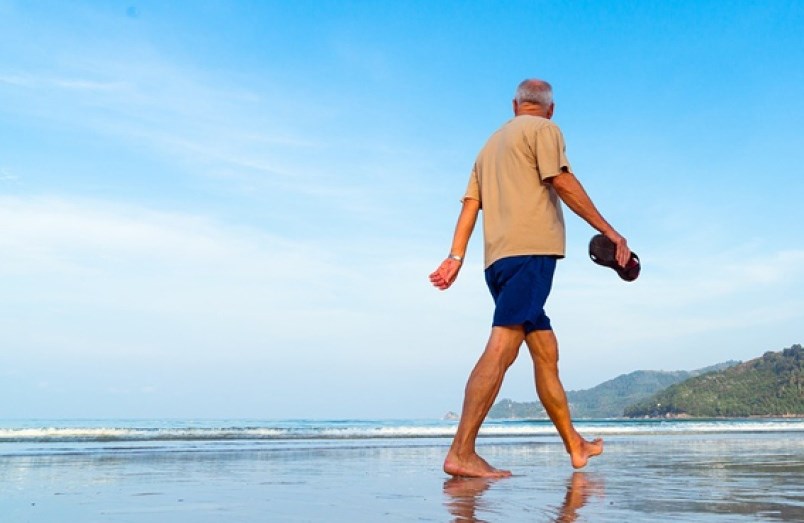A friend of mine experienced a fall several months ago.
Though she wasn’t hospitalized, the fall incapacitated her for several weeks. At the time of the fall, she was unaware of the dangers and repercussions of falling and how prevention efforts could perhaps have saved her from the experience.
The Health Canada website states: “Falls are the leading cause of injury among older Canadians, the cause of 85 per cent of seniors’ injury-related hospitalizations and that 50 per cent of all falls causing hospitalization happen at home while people are doing their usual daily activities.”
About one-third of people aged 65 years and over typically fall once or more each year and an older person’s independence and well-being may be at stake.
Of course anyone can fall, but as we age, our chances of falling become greater because of increased risk factors. Older people can develop poor balance, decreased muscle and bone strength and reduced vision or hearing. Older people can develop symptoms of dizziness and weakness. Also older people may not be taking the steps to keep their homes safe, to eat well and stay fit.
In addition, the fear of falling can have a profound effect on a person as they may curtail their activities which might lead to health issues such as depression, anxiety, isolation and physical decline.
That is the bad news. But there is good news. Falling isn’t necessarily inevitable. The B.C. government’s official website states: “Falls usually happen due to the combined effects of factors that can be prevented.”
Staying fall-free can help you stay independent and avoid the need to enter a long-term care facility.
So what can you do to prevent a fall? You can work on: improving your mobility and balance; increasing your physical activity and muscle strength, following the Canadian guidelines for calcium and vitamin D, getting regular vision check-ups and correcting vision problems, reviewing your medications with your doctor or pharmacist, and reducing trip and slip hazards in your home or outdoors.
In order to keep your home environment safe, a 2017 article on the Comfort Keepers website suggests: removing obstacles inside and outside of the house that could cause tripping; installing handrails and lights on staircases, with light switches at the top and bottom of the stairs; adding non-slip treads for bare wooden steps; installing shower and tub grab bars in the bathroom around the toilet and the tub; placing non-slip mats on the shower floor and bathtub; securing loose rugs with double-faced tape, tacks, or slip-resistant backing and; repairing loose wooden floorboards and carpeting.
Many concur that keeping fit is a key to fall prevention. Keep fit by engaging in a daily exercise program, walking around your neighbourhood or at the mall, taking a balance class, trying resistance exercises like lifting weights, or maybe take up dancing. In the 2019 April issue of On Health, there is an article about a Japanese study which showed women between 75 and 84 who danced regularly were more likely to retain independence in key areas. Researchers stated that “dance may have helped because it combines movement, balance, endurance and focus.”
In another article in the November 2017 issue of On Health, tai chi is recommended for fall prevention. The article said that in a study in the Journal of the American Geriatrics Society they found that “regular classes reduced falls by 43 per cent in those followed up to a year-compared with other exercise.”
There are a few balance, tai chi and strength training classes on the North Shore for seniors. Check them out at your nearest seniors’ centre or organization which has programming for seniors. If you don’t know where the programs or centres are you can look them up in the new Seniors Directory produced by North Shore Community Resources and the North Shore News. Call 604-983-3303 to get a copy.
On a section of the Vancouver Coastal Health website which deals with fall prevention, there is a guide to a set of activities which can be done at home. These exercises, they say, improve balance, strength, breathing, thinking and sleep. Search under “VCH Fall Prevention” for this home activity program.
Eating well is also a key to falls prevention as it contributes to balance and strength and it prevents us from becoming dizzy and weak – two factors that can cause a fall. Eat a healthy diet with plenty of vegetables and fruit to get the proper balance of bone strengthening vitamins.
Use medication wisely. If your medication causes dizziness or sleepiness, adjust your activities so you aren’t at risk of falling. Check with your doctor or pharmacist about possible side effects which might cause a fall.
Let’s make sure we don’t fall – eat well, prepare your home, go to an exercise class or just go dancing.
Margaret Coates is the co-ordinator of Lionsview Seniors’ Planning Society. She has lived on the North Shore for 48 years and has worked for and with seniors for 20 of those years. Ideas for future columns are welcome. Email: [email protected].



